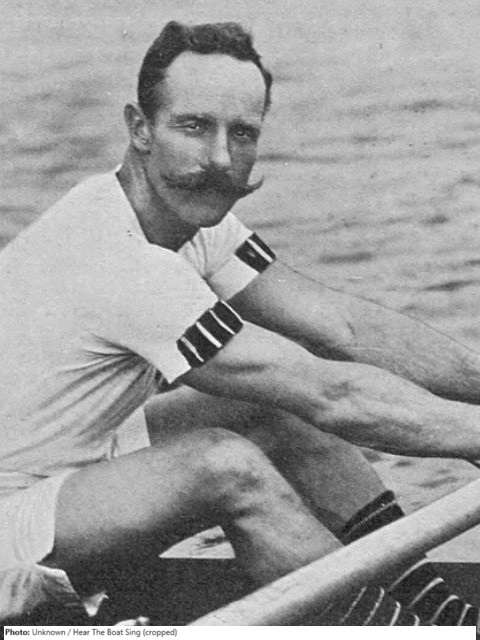
| Roles | Competed in Olympic Games |
|---|---|
| Sex | Male |
| Full name | St George Ogilvie•Ashe |
| Used name | St George•Ashe |
| Born | 23 May 1871 in ? (MLT) |
| Died | 24 July 1922 (aged 51 years 2 months 1 day) in St Leonards-on-Sea, England (GBR) |
| Affiliations | Thames Rowing Club, Putney (GBR) |
| NOC |  Great Britain Great Britain |
| Medals | OG |
| Gold | 0 |
| Silver | 0 |
| Bronze | 1 |
| Total | 1 |
Two years before making history as the first Englishman to row at the Olympic Games at Paris in 1900, St. George Ashe attempted to row the English Channel twice, but three miles after setting off from Dover, his boat filled with water and he had to be rescued by a tug during his first attempt. A week later, he suffered a similar fete during his second attempt.
At the Paris Olympics, Ashe won a bronze medal in the single sculls but his greatest moment was in winning the 1904 Wingfield Sculls at Henley. This made up for his disappointment of not winning the Diamond Sculls, despite many attempts. His best finish was second to Irishman Charles Fox in 1901.
Ashe came close to winning the Wingfield on two other occasions, finishing second to Harry Blackstaffe in both 1905 and 1906. A controversial member of the Thames Rowing Club from 1895, Ashe was suspended by them on many occasions for clashes with officials of the club and also for regular “ungentlemanly conduct”, which resulted in his disqualification from many races.
Having already qualified as a solicitor, Ashe went to Trinity College Cambridge as an undergraduate at the age of 29. During his second year at Cambridge, he concentrated on cycling and running, rather than rowing. He also represented Cambridge in a speed skating match against Oxford at Davros. In 1907 Ashe married a wealthy woman, 15 years older than him. He later suffered mental health issues and committed suicide at the age of 51.
| Games | Discipline (Sport) / Event | NOC / Team | Pos | Medal | As | |
|---|---|---|---|---|---|---|
| 1900 Summer Olympics | Rowing |  GBR GBR |
St George Ashe | |||
| Single Sculls, Men (Olympic) | 3 | Bronze |